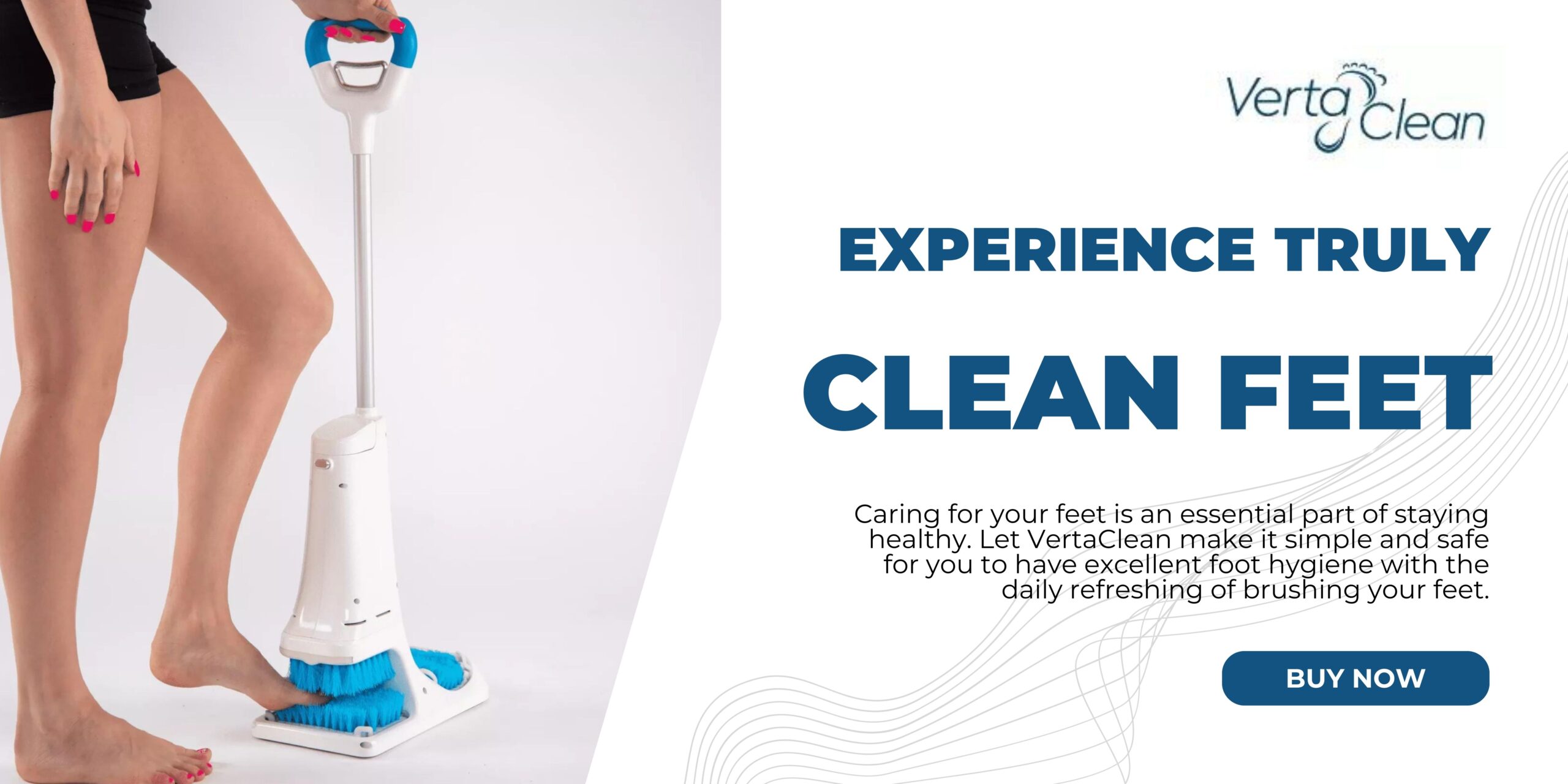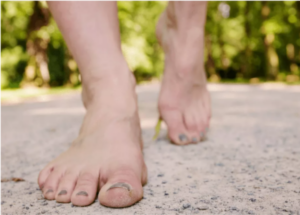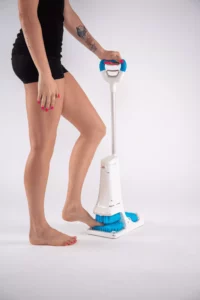As we strive to ensure optimal foot hygiene, there’s a growing curiosity over a common question: “Can shower foot scrubbers be used with any type of soap?” This inquisitiveness emanates from the vast variety of soaps available in today’s market, each with distinct compositions and properties. This article aims to provide an in-depth exploration of this inquiry, shedding light on the compatibility of different types of soaps with shower foot scrubbers, and the implications of their use.
Our first point of focus will be on the types of soaps suitable for shower foot scrubbers. With a variety of soaps available, from organic, antibacterial, moisturizing soaps to those designed specifically for foot care, it’s crucial to discern which ones work best with your foot scrubber.
In our second section, we will delve into the materials of shower foot scrubbers and soap compatibility. Different scrubbers are made from diverse materials, each with its unique interaction with soap. Understanding this will help maximize the lifespan and efficiency of your scrubber.
Next, we will discuss the effects of different soaps on shower foot scrubbers. Certain soaps might cause wear and tear or even alter the functionality of your scrubber, which is why it is important to be informed about potential impacts.
Our fourth topic will explore how soap formulation can affect foot scrubbing effectiveness. The soap’s chemical constitution can determine how well it lathers and cleans, which directly influences the scrubbing process.
Finally, we’ll look at the long-term impact of soap types on shower foot scrubbers. Some soaps could potentially cause substantial damage over time or decrease the effectiveness of your scrubber. Knowing what to expect can help you make informed decisions and ensure the longevity of your shower foot scrubber.
Join us as we delve into these important factors, helping you maintain not only a healthy foot hygiene routine but also the durability and effectiveness of your shower foot scrubber.
Types of Soaps Suitable for Shower Foot Scrubbers
There is an array of soaps that can be used with shower foot scrubbers. Notably, the type of soap used can significantly influence the overall foot scrubbing experience, including the effectiveness of the scrub, the smell, as well as the texture of the scrubber after use.
Firstly, there are bar soaps which are the most traditional form of soap. Generally, they are compatible with shower foot scrubbers. Bar soaps typically produce a rich lather which can give a deep cleanse. On the downside, some bar soaps can leave a residue on the scrubber if not thoroughly rinsed after use.
Liquid soaps or shower gels are another option. These types of soaps are often considered more convenient to use with foot scrubbers because they are easy to distribute across the scrubber’s surface. They also rinse off easily, leaving minimal residue.
Additionally, there are specialty soaps which are designed with specific purposes such as exfoliating, moisturizing, or treating foot conditions like athlete’s foot. These soaps can be an excellent choice for use with shower foot scrubbers, providing additional benefits. However, it’s important to ensure that the soap’s ingredients are safe for both the user and the scrubber’s material.
In conclusion, while there’s a wide variety of soaps suitable for shower foot scrubbers, the choice largely depends on personal preference and specific requirements. Always remember to thoroughly rinse your scrubber after each use to maintain its effectiveness and longevity.
Materials of Shower Foot Scrubbers and Soap Compatibility
Materials of shower foot scrubbers and soap compatibility is an essential subtopic when discussing whether shower foot scrubbers can be used with any type of soap. Shower foot scrubbers are typically made from materials like plastic, silicone, or natural fibers. Each of these materials interacts differently with various soap types, which can affect the scrubber’s efficiency and lifespan.
Plastic scrubbers, for instance, are highly durable and can handle virtually any soap type. Whether you’re using a harsh, deep-cleaning soap or a gentler, moisturizing variant, plastic foot scrubbers can withstand it all. However, some users might find plastic a bit too hard for their liking.
Silicone scrubbers, on the other hand, offer a softer, more flexible scrubbing experience. They are also highly resistant to many soap types. However, some heavily fragranced soaps or those with special additives might degrade silicone over time.
Natural fiber scrubbers made from materials like loofah or sisal have a unique texture that many find invigorating. However, these scrubbers can be sensitive to certain soap types. For example, soaps with high acidity levels can cause natural fibers to break down more quickly.
It’s crucial to remember that while most shower foot scrubbers are designed to handle a wide range of soap types, some combinations may not be ideal. Therefore, it’s always wise to consider the scrubber’s material and the soap’s formulation before using them together.
Effects of Different Soaps on Shower Foot Scrubbers
The effects of different soaps on shower foot scrubbers is a crucial factor to consider when it comes to both maintaining the longevity of your scrubber and ensuring its effectiveness. The type of soap you use can have varying impacts on the scrubber material, potentially leading to degradation over time or, in some cases, enhancing its scrubbing capabilities.
Many shower foot scrubbers are made from materials like plastic, silicone, or nylon, each with their own unique characteristics and reactions to different soaps. For instance, harsh, chemical-based soaps could potentially damage plastic or nylon scrubbers over time, leading to faster wear and tear. On the other hand, milder, more natural soaps may have less of an impact on these materials, allowing your shower foot scrubber to last longer.
Furthermore, the type of soap can also affect the scrubbing effectiveness. Some soaps may lather more than others. Soap with a lot of lather could potentially clog the scrubber’s bristles, reducing its effectiveness. On the other hand, soaps that do not produce much lather may not provide the desired cleaning effect.
In conclusion, understanding the effects of different soaps on shower foot scrubbers is essential for choosing the right soap that will ensure effective scrubbing and prolong the scrubber’s lifespan. Careful consideration should be given to the soap’s ingredients, the scrubber’s material, and the interaction between them.
How Soap Formulation Could Affect Foot Scrubbing Effectiveness
The effectiveness of a shower foot scrubber depends significantly on the type of soap used, hence the need to understand how soap formulation could affect foot scrubbing effectiveness.
Different soaps have varying formulations, with some being more acidic and others more basic. The pH level of the soap can affect the skin’s natural pH balance and its susceptibility to bacterial infection. Using a soap that is too harsh or too mild for your skin could result in irritation or dryness. Therefore, it’s crucial to choose a soap that matches your skin type when using a shower foot scrubber.
Moreover, the formulation of the soap can also affect the scrubber’s ability to lather and clean. Soaps with high lather production can increase the scrubber’s effectiveness, as they help to spread the soap evenly across the foot and remove dirt more efficiently. On the other hand, soaps with lower lather production might not spread as well, reducing the scrubber’s effectiveness.
Lastly, the soap’s formulation might contain ingredients that could potentially damage the material of the foot scrubber. For instance, some soaps contain abrasive particles meant for exfoliation, which might be too harsh for certain types of scrubbers, causing them to wear out faster. So, it’s crucial to consider the soap’s formulation before using it with a shower foot scrubber.
In conclusion, while shower foot scrubbers can be used with any type of soap, it’s crucial to consider the soap’s formulation as it can significantly affect the effectiveness of the scrubbing process and the longevity of the scrubber.
Long-term Impact of Soap Types on Shower Foot Scrubbers
The long-term impact of soap types on shower foot scrubbers is a subject of considerable importance. It revolves around the compatibility and effects different types of soaps can have on the scrubbers over an extended period of time. This is critical because not all soaps are formulated the same way and the ingredients contained in these soaps can potentially affect the longevity and effectiveness of the scrubbers.
The type of soap used can have a direct influence on the durability of your shower foot scrubber. For instance, soaps that are highly acidic or alkaline may gradually erode the material of the scrubber, thus reducing its lifespan. On the other hand, soaps that are neutral or mild can help to preserve the scrubber for a longer duration. Therefore, it’s advisable to use soaps that are gentle on both your feet and the scrubber.
Moreover, soap residues can build up on the scrubber over time, affecting its functionality. Certain types of soaps are more prone to leaving residues than others. These residues can not only make the scrubber less effective at exfoliating and cleaning your feet, but they can also provide a breeding ground for bacteria and mold if not properly cleaned.
In conclusion, while shower foot scrubbers are designed to be used with most types of soaps, it is important to consider the type of soap you use. It can significantly affect the lifespan and effectiveness of your scrubber. Therefore, a careful selection of soap that is gentle and less prone to leaving residues can enhance the durability and functionality of your shower foot scrubber in the long run.




